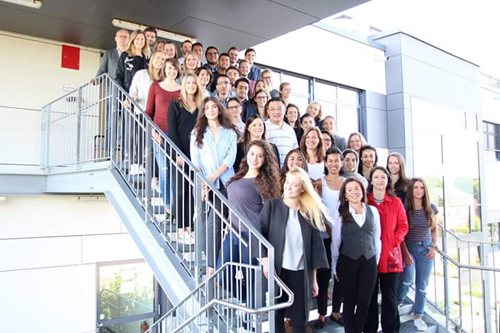The course consisted of the modules Intercultural Management, as well as Social Entrepreneurship. The hostess and brains behind the Summer School, Eika Auschner, was the principal lecturer for the Intercultural Management module and Dr Tai-Hing lectured the Social Entrepreneurship (SE) module. The SE module consisted of topics such as –
-
Introduction to SE
-
The typical profile associated with social entrepreneurs
-
Funding Models
-
Improving Creativity
-
Powerful Presentations
-
Case studies from the Nelson Mandela University
Students were also divided into project groups and presented with five real live social projects from South Africa (three projects), Colombia (one project), and Mexico (one project). Project teams were required to –
-
Liaise with the social organisations in the country of origin in order to obtain a better overall picture of the project - this was done through many Skype meetings.
-
Identify a detailed SWOT analysis pertaining to the organisation.
-
Develop a detailed business model for the organisation.
-
Develop a detailed marketing plan for the organisation.
-
Develop and initiate practically all marketing material relevant to the organisation.
-
Prepare both a written document, as well as a 30-minute presentation pertaining to the project, for assessment.
The lessons learnt in Muenster –
-
Students are EXTREMELY committed – lectures commenced at 9h00 each day and ended at 16h30. There were no breaks provided except for a 15-minute tea break in the morning, and a 30-minute lunch break in the afternoon. At 16h30, all students remained behind in the classroom and worked until 20h30, some groups even until 23h00 at night.
-
SE is currently extremely topical in the rest of the world with the move towards sustainable development.
-
The Muenster Faculty of Business and Economic Sciences is extremely keen to form an exchange program relationship with the Nelson Mandela University School of Management Sciences. Whilst in Muenster, meetings were conducted with the Director of the International School, Dean of the Faculty, as well as the Rector of the University in this regard.
On return from the Summer School, much has taken place –
-
Discussions have commenced and preparations are under way to host a reciprocal Summer School next year after the June examinations.
-
Meetings have been set up with the three Port Elizabeth social organisations regarding their projects. The student presentations will be presented to the organisations that will then implement the student proposals. Tracking of progress will occur as future reports will be channeled back to both the students and the Muenster Summer School staff.
In conclusion, the experience has been a rewarding one and “came at a time where I found myself at an all-time low in my lecturing career”, according to Dr Tai-Hing. The opportunity to lecture in Muenster reminded him again of my teaching philosophy –
“It is only through education that the shackles of poverty can be broken” and
“I might not be able to change the world, but through my students I am able to effect positive change one small step at a time”
For this, I am extremely grateful.

ABOVE: Dr Tai-Hing with students attending the Summer School